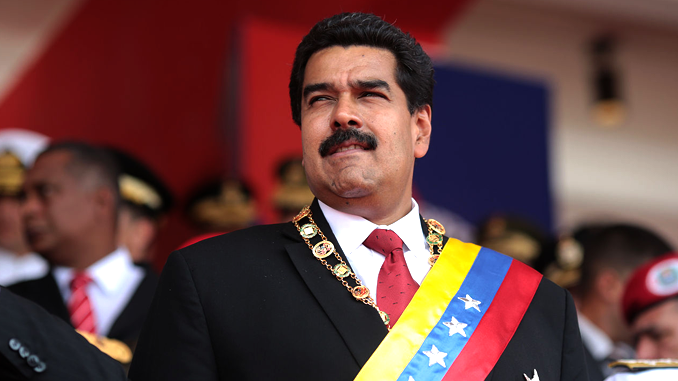
President Maduro’s hold on Venezuela is legally questionable. He was Vice President under Hugo Chavez and ascended to the Presidency after Chavez’ death, winning a special election for the position.
The policies of Chavez were triggering ill effects in the country, however, and lacking the emotional investment and attachment that the voters had developed with Chavez, he was faced a large opposition win in the Venezuelan National Assembly and a call for his removal in 2016.
After a referendum had begun for Maduro’s recall, pro-Maduro election officials terminated the vote, as reported by the BBC. At the same time, opposition leaders were prevented from leaving the country and subsequently arrested.
After consolidating control with a series of further arrests, accused election rigging, threats to the judiciary and policies targeting his political enemies, Maduro won re-election last year and was inaugurated on January 10th.
The inauguration triggered a series of protests which have consolidated around relative political unknown Juan Guaido, the leader of the opposition in the National Assembly.
Earlier in the week, there was a small attempted coup against Maduro and many large protests, as reported by TNB. Equally noteworthy was the United States’ official recognition of Guaido as the official leader of Venezuela, based on the questionable history of Maduro.
The United States was not alone in this. Brazil, by far the largest country in South America, agreed:
Canada, the UK, and nearly all other Central and South American countries have officially recognized Guaido as the correct leader. Mexico is an exception, whose official position was to call for dialogue between Guaido and Maduro… matching the official position of the E.U… but has since shifted to supporting Maduro.
Many other countries (particularly in the European Union) had indicated an openness to recognizing Guaido, but that was before Maduro’s allies spoke out. He does not have many allies, but they are powerful and influential. Russia and China have spoken in favor of the dictatorial regime, and Russia has warned the United States not to interfere.
For China, their policy may be informed by the large investments made in Venezuela’s oil companies, according to the South China Morning Post. For Russia, Venezuela is a key regional ally, one with whom they regularly perform military operations.
Those stances have encouraged countries like Bolivia, Cuba and Turkey to support Maduro, and may have influenced Mexico’s decision (or, perhaps, it was simply the political similarities between Maduro’s current policies and AMLO’s historical policy preferences) to support the status quo.
The international efforts at recognition are key in understanding the economic and diplomatic actions at the heart of the matter… and to understanding why Venezuela recently demanded the immediate ouster of all U.S. diplomats from its border. Maduro retains the support of key international allies and he retains the support of the military, which keeps any attempted martial action to remove him from being taken by the citizenry.
